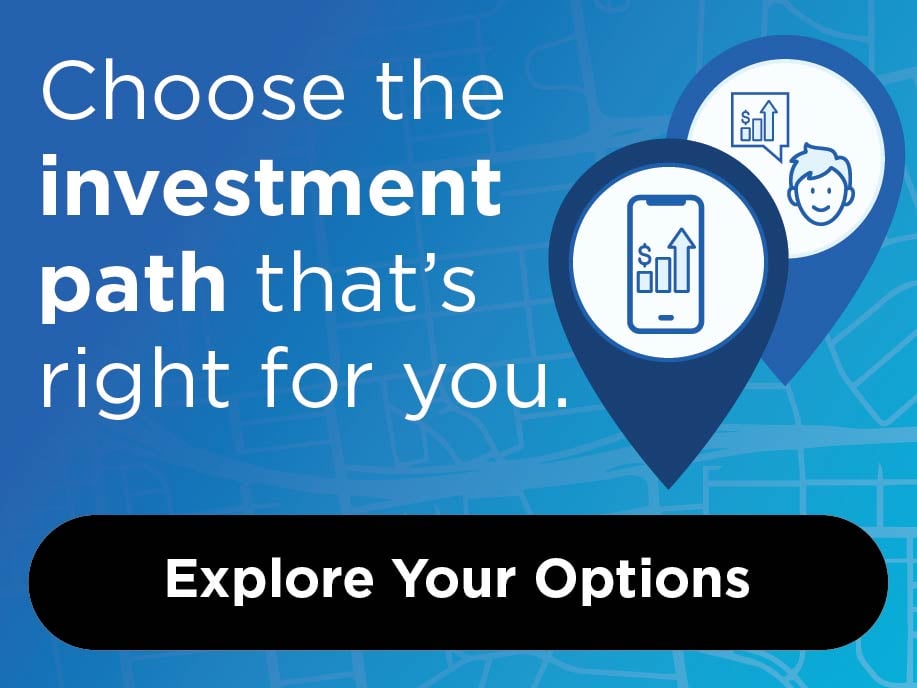
When it comes to managing your money, sometimes the biggest obstacles aren’t the numbers, they’re the myths we’ve come to believe.
Maybe you’ve heard advice from a well-meaning friend, or you’ve picked up tips online that aren’t exactly accurate. Over time, these myths can quietly shape your financial habits — and not always in a good way. The good news? A little knowledge goes a long way toward building stronger financial habits and confidence.
Here are a few of the most common money myths, and the truths that can help you move forward with more clarity and confidence.
Myth #1: Checking your credit report will hurt your score.
The truth:
Checking your own credit report is what’s known as a soft inquiry — and it does not affect your credit score. In fact, regularly reviewing your credit report is one of the smartest ways to protect your credit health. It helps you catch potential errors or signs of fraud early. You can access your report for free each week at annualcreditreport.com.
It’s important to know the difference between a soft inquiry (which is harmless) and a hard inquiry — which typically happens when you apply for new credit, such as a loan or credit card. Too many hard inquiries in a short period can lower your score. Understanding the difference helps you make informed choices and advocate for yourself when needed.
Myth #2: It’s best to save whatever’s left over at the end of the month.
The truth:
Waiting until the end of the month to save often means there’s little or nothing left to put aside. A better approach is to “pay yourself first” by setting aside a portion of your income for savings as soon as you get paid. Treat your savings like a fixed expense—just like rent or a car payment. Automating this process can make it easier and help you build a healthy financial cushion over time.
Myth #3: I only need to pay the minimum payment to get out of debt.
The truth:
While making the minimum payment keeps your account in good standing, it often means that most of your payment is going toward interest, not your actual balance. This can significantly slow down your progress and cost you more in the long run.
The good news? Even small, consistent extra payments can make a big difference. By paying a little more than the minimum each month, you’ll reduce your balance faster, pay less in interest, and reach your debt-free goals sooner.
For more common credit myths and tips on managing debt, check out our related blog post on credit misconceptions.
Myth #4: All debt is bad.
The truth:
Not all debt is harmful — it depends on the type of debt and how it’s managed. High-interest debt, such as credit card balances or payday loans, can quickly become a financial burden and should be prioritized for repayment.
On the other hand, certain types of debt, like a mortgage or student loans, can be strategic tools when used wisely. These debts often come with lower interest rates and can support long-term goals, such as homeownership or higher education. The key is understanding the difference, borrowing responsibly, and having a plan in place to manage and repay debt effectively.
Myth #5: You need a lot of money to start saving.
The truth:
You don’t need a large sum of money or the perfect timing to begin saving. In fact, the most important step is simply to start, even if it’s with a small amount.
Building the habit of saving is what matters most in the beginning. Small, consistent contributions create momentum, and over time, those amounts add up. Whether you’re setting aside $5, $25, or more, every bit moves you closer to greater financial stability and peace of mind.
Myth #6: You should pay off all debt before starting to save.
The truth:
It’s a smart practice to balance both goals at the same time. While paying down debt is important, having some savings in place — especially an emergency fund — can help you avoid taking on more debt when unexpected expenses come up.
Even small contributions to savings can make a big difference in building financial resilience. By steadily reducing debt while also building a savings cushion, you’ll be in a stronger position to handle life’s surprises and protect your long-term financial well-being.
Myth #7: Budgeting is restrictive and means you can’t enjoy your money.
The truth:
A budget isn’t about restriction — it’s about intention. A well-crafted budget gives you clarity and control over your money, so you can spend in ways that reflect your values and priorities.
A good budget should absolutely include room for “fun money.” Giving yourself permission to spend on things that bring you joy — without guilt — is an important part of maintaining a healthy relationship with your finances. When you approach budgeting this way, it becomes an empowering tool, not a limitation.
Myth #8: Budgeting is too complicated and time-consuming.
The truth:
Budgeting doesn’t have to be overwhelming. In fact, your budget can be as simple or as detailed as you want it to be. With today’s apps and tools, it’s easier than ever to track your spending, set goals, and make adjustments along the way.
Remember — the best budget is one you’ll actually use. It doesn’t have to be perfect. What matters most is building consistency and finding a system that works for your lifestyle. Over time, even simple budgeting habits can help you feel more confident and in control of your finances.
Final Thoughts: Small Shifts, Big Impact
By clearing up common money myths, you can make more confident, informed choices, and create a financial plan that truly works for you. Remember, it’s not about being perfect — it’s about making progress and building habits that support your long-term goals.
Our team of Financial Well-Being Coaches at CommunityAmerica Credit Union is here to help. Whether you want to strengthen your credit, manage debt, grow your savings, or create a budget that fits your life, we’ll meet you where you are — and help you move forward with confidence, no matter your life stage.





